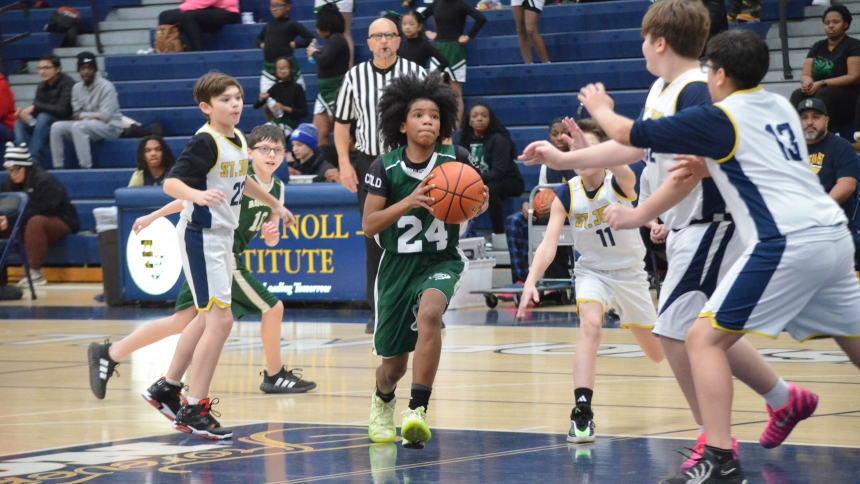
As published in the Northwest Indiana Catholic on September 3, 2017
Everyone I speak to these days is disturbed by the violence erupting all over the country and world. Steady terrorist attacks, ISIS threats against the pope and the Vatican, extremist groups fighting, hurting and even killing each other, the continued carnage on the streets of Chicago, the ceaseless taking of unborn life through abortion, children who are abandoned, abused and neglected, the fact that 22 U.S. veterans kill themselves every day, and the list goes on.
When it comes to respect and reverence for the dignity and lives of other people, we seem to be moving in the wrong direction. Where does all of this destructive hatred come from?
Legalized abortion has normalized the destruction of unborn children. We have embraced the insanity of a law that says if the child is wanted by the mother, the child is human and has a right to life; if the child is not wanted by the mother, the child can be destroyed. No one else, including the father, has anything to say about it.
How can anyone not see that the systemic, state-sanctioned killing of millions of unborn children has coarsened and diminished our respect for human life in all its forms? If we do not respect the life of a child in the womb, then why reverence other vulnerable lives, why respect the rights of people who differ from us, why not attack and kill those who threaten us in some way?
Ponder the violence of movies and video games. The average American child has been exposed at a very tender age to thousands of scenes of violence in which people are virtually attacked and killed, whether it is on the big screen at a movie theater or the little screen of their video game.
How does this steady bombardment of terrible images not impact the consciences and hearts of our young people? Tragically, some of our youth act out in real life the virtual violence they have witnessed throughout their entire existence. Victims themselves of a violent culture, they act out the destruction they have seen and felt.
I have written before about the terrible impact of bullying, scape-goating and name-calling that has infected every niche of our society. We see such negative behavior in our political discourse, the national media, Facebook, our schools, places of work and homes. I would add the marked increase in reckless and dangerous driving as another area of concern.
This morning, I was almost driven off the freeway by a truck driver who was impatient because I wasn’t going fast enough for her. Tailgating, speeding, disregard of stop signs and red lights, weaving in and out of traffic seem to have reached epidemic proportions. This is just another example of disregard for human life, safety, courtesy and the need to think of the other person. In many ways, our social fabric has come apart, as anger, self-interest and tribalism have fragmented our communal cohesion.
The Gospel of Jesus Christ calls us to embrace peace and to shun violence, to love our enemies, pray for our persecutors and turn the other cheek, to break the deadly cycle of violence, revenge and hatred through forgiveness, reconciliation and charity. As I understand the Gospel, Jesus calls me to not add to the violence, rage and hatred that are already in the world.
Environmentalists speak of the need to reduce our carbon footprint; I need to reduce and eliminate my anger and negativity footprint. This effort is much more important than we may think in terms of our spiritual growth and living out the faith. We often act out of unresolved fear and anger.
How and where do we find healing and peace within ourselves, so that we can be instruments of that reconciliation for others? Do my words build up or tear down? Do my actions heal and invite or hurt and exclude? In what ways, perhaps very subtly, do anger, fear and violence control me?
Jesus was able to preach the Gospel with authority, face the anger of the Pharisees and Romans with equanimity, love the crowds of people pushing against him with patience and ultimately forgive his killers because he was so deeply grounded in his relationship with the Father. Knowing himself to be loved as the Son, Jesus could share that love with everyone he met and resist the urge to enter the deadly cycle of fear, anger, revenge and hatred.
The torrent of mercy flowing from the Cross is the divine grace that alone can heal humanity of its spiritual sickness and self-loathing.
We live in a critical moment of history which will direct the future course of our nation and world. God has placed us as bearers of the Gospel, as protagonists of the Kingdom, smack dab in the middle of this very messy and sometimes frightening world to be light, salt, hope and peace for others.
As we celebrate Mass next Saturday, September 9 for racial justice, healing and peace, we ask the Lord to stir our hearts towards a holy boldness, to be patient, forgiving and courageous as we act out the Good News and lovingly challenge the forces of destruction and darkness in our world.
The future of humanity depends on it.
+ Donald J. Hying


